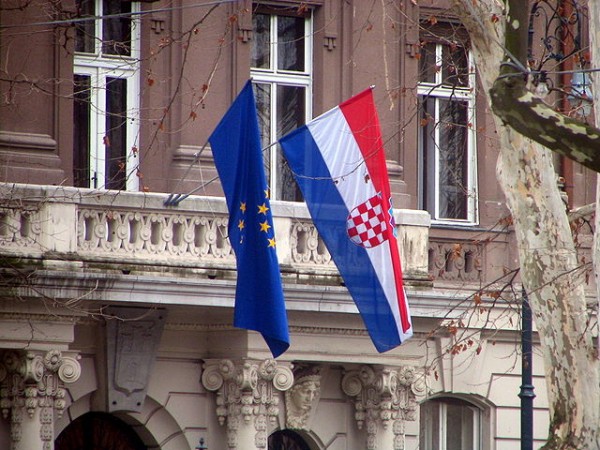
[Bogdan Giuşcă]
The fall of Croatia’s biggest privately-owned company, Agrokor, has brought into sharp relief the extent to which crony capitalism, botched privatizations, and corruption still hold sway in the Balkans.
In a recent report, the Friedrich Naumann Foundation for Freedom highlighted the Agrokor scandal – and the actions of its larger-than-life owner, Ivica Todoric – as worrying signs of resurgence of the corruption that previously hampered the state’s accession to the EU and that could prove to be merely the tip of the iceberg in this still-troubled region.
The Agrokor affair has not only exposed the perilously close connections between politics and business in Croatia, but may also have the power to disrupt the country’s government, potentially forcing the EU’s most recent recruit into yet another general election – the third in less than two years – just as its struggling economy was beginning to show signs of recovery. And echoes of comparable corruption cases across the Balkans – not least in Croatia’s neighbor and prospective EU member state, Montenegro – show just how deeply such issues persist a quarter-century after the fall of Communism, giving pause to EU lawmakers as they mull whether or not to welcome new Balkan nations into their fold.
The story of how Todoric built a business that today accounts for 15% of Croatia’s GDP is little short of remarkable. A modest family flower-producing enterprise established by Todoric and his father in the 1970s, Agrokor’s holdings grew over the ensuing decade, giving Todoric – with his valuable political connections – the wherewithal to cash in on the mass and often shady sale of state-run companies in the 1990s.
Over the following years, Todoric expanded aggressively into a number of markets, acquiring assets inside Croatia and in neighboring states, including Serbia and Bosnia – a strategy that ultimately led to the company’s collapse. In 2014, Todoric bought a majority stake in the Slovenian retailer Mercator, using high-interest loans from Russian state-owned bank Sberbank that were simply unsustainable.
With stiff competition from EU retail chains, following the country’s accession to the bloc, profits became harder to achieve and, having accumulated debts of $7 billion, Agrokor reached the brink of collapse. The government was forced to step in to keep Agrokor afloat, while Todoric fled to London amid charges of embezzlement. Government crisis manager Ante Ramljak is now pressing for criminal charges against those responsible.
The bankruptcy is so significant that it’s become an issue of national concern for several Balkan countries. Todovic may have had to forfeit his castle and other luxurious residences, but Agrokor’s 60,000 employees – not to mention the thousands of businesses that feed the supply chain – face losing their livelihoods. All as a result of Todovic’s ill-fated decisions to leverage his political connections, and indulge his zeal for expansion, a bridge too far.
Worst of all, the Agrokor affair is far from an isolated incident in the Balkans. Montenegro, in particular, could give Croatia a run for its money when it comes to corruption at the highest levels of business and government, known as a haven for organized crime groups that frequently have close ties with political officials.
Indeed, former Prime Minister Milo Djukanovic – who stepped down following elections last October after more than 20 years in power – has been implicated in a series of major corruption scandals, including the demise of Prva Bank and the Telekom Affair, which involved alleged irregularities during the sale of state-owned Telekom to Hungarian firm Magyar Telekom.
Djukanovic’s brother Aco acquired control of Prva Banka in November 2006. By the following year, despite a spike in deposits from €23 million to €127 million, the bank was already experiencing financial difficulties. The reason for the discrepancy became obvious as it emerged that Djukanovic’s associates had been using the bank as their ‘personal ATM’, benefiting from interest-free loans with no repayment plan, while their deposits earned handsome interest rates. Reports from the Central Bank also show that the bank leadership mismanaged its affairs in the face of multiple warnings from the regulator, consistently breaching anti-money laundering measures.
By 2008, the bank’s finances had reached such a critical state that the government was forced to step in with an emergency bailout. In the end, Prva Bank only survived thanks to a rushed privatization of the state’s electric company (EPCG), which delivered a cash injection of €100 million in return for an 18% share in the institution.
Not only that, but Djukanovic was also implicated in the corruption surrounding the sale of state-owned Montenegrin Telekom to Hungary’s Magyar Telekom. In 2011, the US Securities and Exchange Commission accused Magyar Telekom of funneling $9 million to Montenegrin government officials through sham contracts, including a bribe to Djukanovic via his sister Ana Kolarevic.
For the people of Croatia and Montenegro, the fact that such shady business dealings continue to this day is a sign of how far their neighborhood still has to go.
Even officials in high political office who play the system to their own ends are seldom brought to book. Case in point: despite Djukanovic’s alleged involvement in the Prva, Telekom, and a slew of other scandals, there are rumors that he intends to return to the political arena, possibly even running for the country’s presidency next year – and it’s widely believed that he’s still pulling the present government’s strings from backstage.
With evidence of corruption persisting across the Balkans, unless it is addressed, root and branch, via progressive reform, it will be hard to convince onlookers that real change is on the agenda. For Brussels decision-makers, then – many of whom have been muttering misgivings over what they say was a premature decision to allow Croatia to enter the EU – the persistence of such cronyism across the region is likely to make them think twice before allowing Montenegro or its neighbors into the bloc.